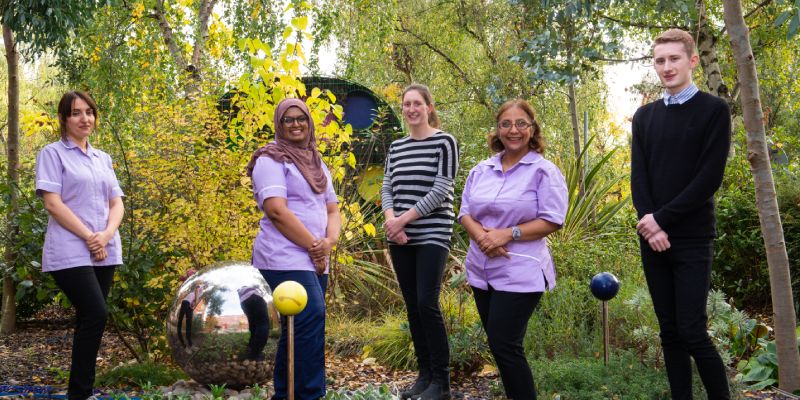Our team is based within St James’s University Hospital and Leeds General Infirmary within the heart of Leeds. The team’s role is to provide stop smoking advice to the inpatients.
My professional background consists of studying Psychology at University, and I became an NLP trained mental health coach. Whilst studying, I worked part-time within respiratory outpatients, which allowed me to witness how important respiratory health is. I decided to become a Stop Smoking Advisor, due to it being a new initiative for the hospital. It was an opportunity to combine a lot of skills gained and to implement the theoretical knowledge. Being part of a team that is rolling out a completely new service to the whole of the hospital is also a great opportunity.
The morning starts with the team having to identify which patients need to be seen and where they are located. By checking the internal reports, we can update our reports with all the patients identified as an individual that smokes when they arrived within the hospital.
Due to the team covering all areas of the hospital, we have a large range of patients to see. Patients will have been admitted in to hospital for a variety of reasons, and therefore we need to be mindful of their health issues before having a consultation on supporting them to refrain from smoking.

Over the course of the day, the team visits each patient at their bedside and has a consultation.
As an inpatient smoking advisor, we are required to help the patient in two main ways:
- Help them manage their cravings for smoking whilst they are in hospital
- Help them understand how they feel about quitting smoking altogether when they leave the hospital
It is very interesting as a smoking advisor, to understand whether the patient would like to quit smoking due to the decline of their health, or if the patient would like to quit smoking due to them being ready to make a quit attempt. Furthermore, both hospital sites are smoke-free sites, thus making it rather difficult for the patients to smoke, which allows the stop smoking advisor a good catalyst to promote nicotine replacement therapy (NRT) to help them with the craving.
Having an open, honest discussion with the patients, allows the advisors to understand their smoking behaviour, and to provide information on the relevant nicotine replacement products. Nicotine replacement therapy can be personalised based on each patient’s needs to ensure the cravings are not overpowering and making the patient feel more unwell.
The consultation allows the patient to make an informed decision of which NRT products they would like whilst in hospital, and to start their quit attempt in an environment where they know they will receive support.
Behaviour support alongside identifying relevant NRT products is an essential part of the role. For me personally, I really enjoy empowering the patient with knowledge and understanding of their smoking behaviour and allowing them to discover ways to change their behaviour. Being able to help patients reframe their approach to their smoking behaviour is one of the most challenging but rewarding aspects of the job role.
One of the many milestones I believe I have had within this job role, would be when a patient was adamant they will not quit smoking due to smoking for such a long time. Allowing the patient a safe space and time to express why they believe this, allowed the patient to realise which behaviour, thoughts and feelings were holding them back from attempting to quit smoking. By allowing the patient to have the opportunity to voice their views, I was able to provide factual information as well as behavioural supports to help them visualise a quit smoking attempt. This resulted in the patient wanting to attempt to quit smoking. It was a very rewarding moment to witness the patient state that it was the first time they have had hope that they may be a non-smoker in the near future.
Working within Leeds Teaching Hospitals as a Stop Smoking Advisor, we are also required to communicate effectively with both the nursing team and the doctors, which makes it a holistic way to help the patient to improve their health.
My advice to individuals who are working towards becoming a non-smoker would be that you do not have to go on this journey alone: there are many organisations within the community that can help, and hopefully moving forward there will be inpatient Stop Smoking Advisors in all hospitals.